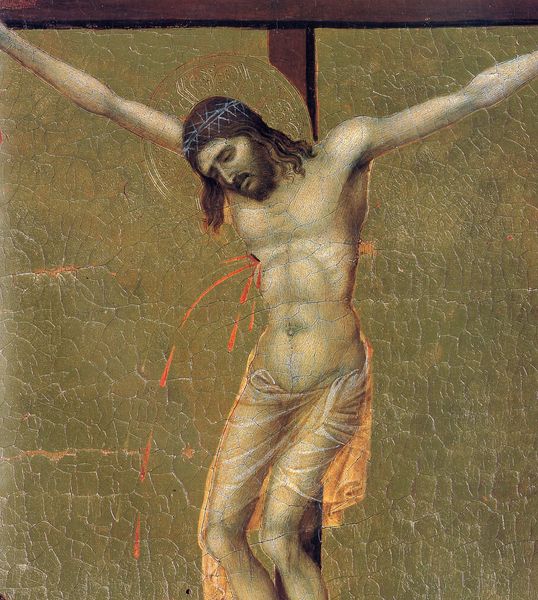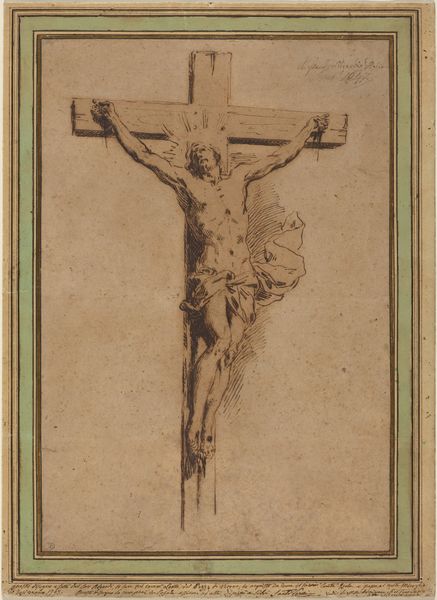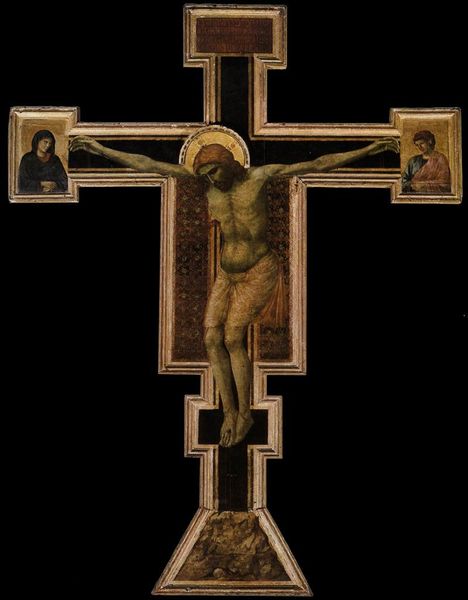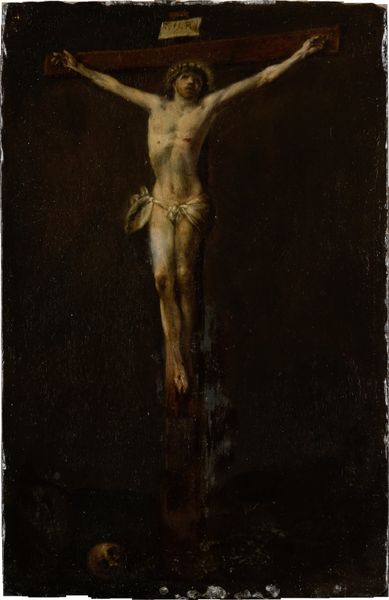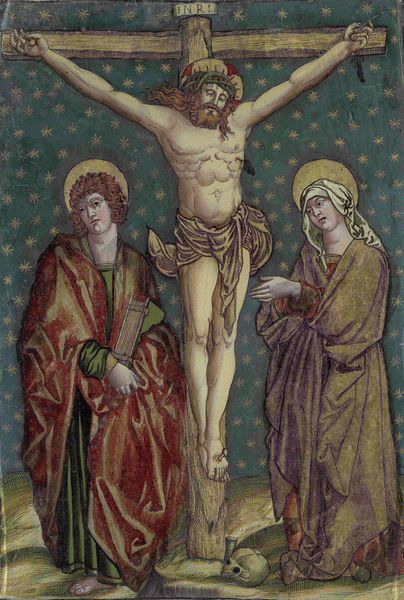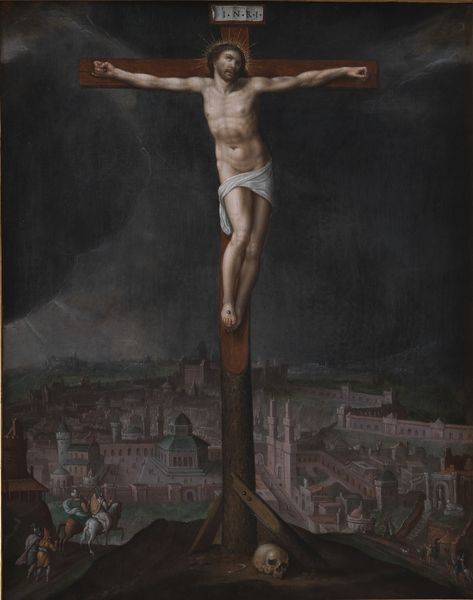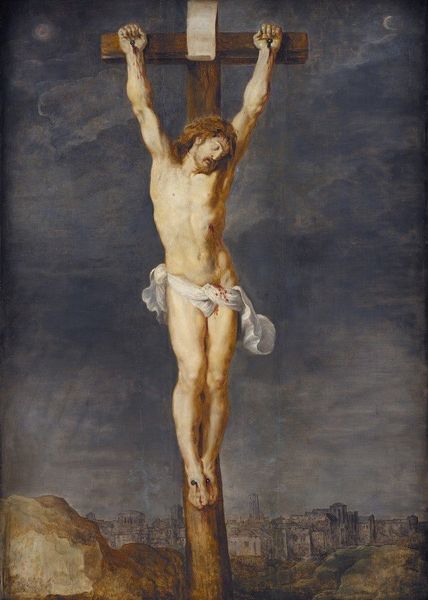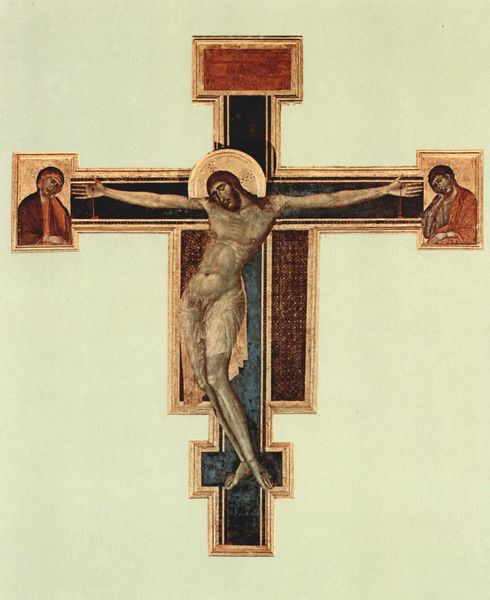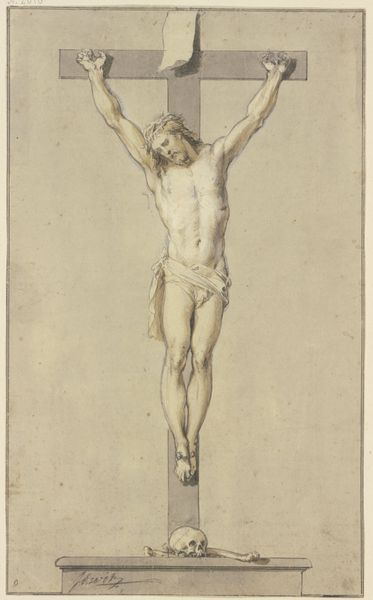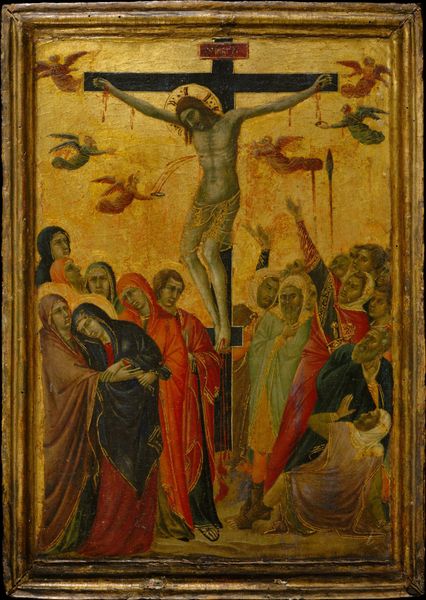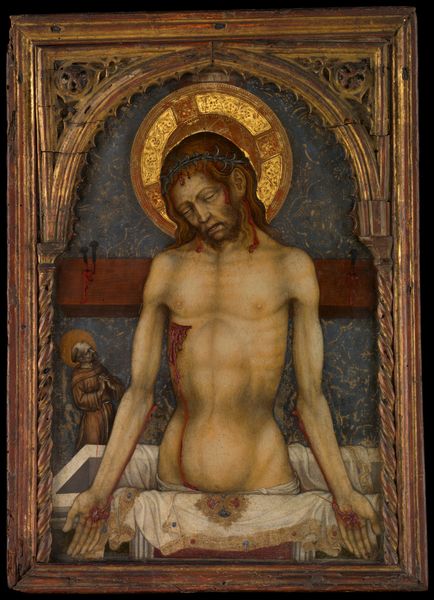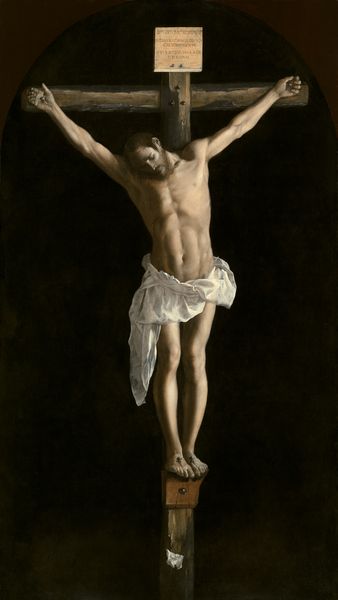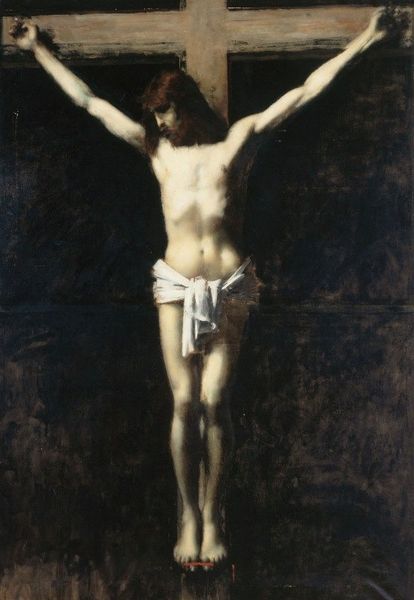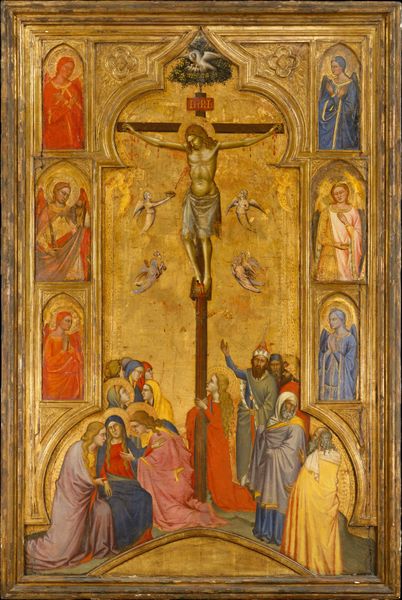![Christ on the Cross [reverse] by Andrea di Bartolo](/_next/image?url=https%3A%2F%2Fd2w8kbdekdi1gv.cloudfront.net%2FeyJidWNrZXQiOiAiYXJ0ZXJhLWltYWdlcy1idWNrZXQiLCAia2V5IjogImFydHdvcmtzL2NmNTA4NzZiLWZhZGYtNGFjNy05ZjI0LTM4MWMxYWM0ZDM4Ny9jZjUwODc2Yi1mYWRmLTRhYzctOWYyNC0zODFjMWFjNGQzODdfZnVsbC5qcGciLCAiZWRpdHMiOiB7InJlc2l6ZSI6IHsid2lkdGgiOiAxOTIwLCAiaGVpZ2h0IjogMTkyMCwgImZpdCI6ICJpbnNpZGUifX19&w=3840&q=75)
carving, tempera, painting, wood
#
portrait
#
carving
#
tempera
#
painting
#
painted
#
figuration
#
oil painting
#
underpainting
#
wood
#
history-painting
#
italian-renaissance
Dimensions: painted surface: 30 × 18.6 cm (11 13/16 × 7 5/16 in.) overall: 30 × 18.6 × 0.8 cm (11 13/16 × 7 5/16 × 5/16 in.) framed: 52.7 x 34.3 x 7.9 cm (20 3/4 x 13 1/2 x 3 1/8 in.)
Copyright: National Gallery of Art: CC0 1.0
Andrea di Bartolo painted "Christ on the Cross" sometime in the early 15th century. During this time, religious art served not only as a form of worship but also as a powerful tool for shaping social and moral values. This painting invites us to consider the emotional and physical suffering endured by Christ, rendered here with a vulnerable humanity. It reflects a society steeped in religious doctrine, and yet, the artist's rendering of the scene provides a space for the consideration of suffering. How does our understanding of power and subjugation influence how we interpret this depiction? The history of such images is complex. They have been used both to inspire compassion and to justify oppression. The body on the cross becomes a focal point for a range of feelings: sorrow, reverence, and perhaps, a call for justice. By engaging with this work, we can reflect on how cultural narratives are formed and reinforced, and how artists, even within strict conventions, can offer alternative perspectives that resonate across centuries.
Comments
No comments
Be the first to comment and join the conversation on the ultimate creative platform.
